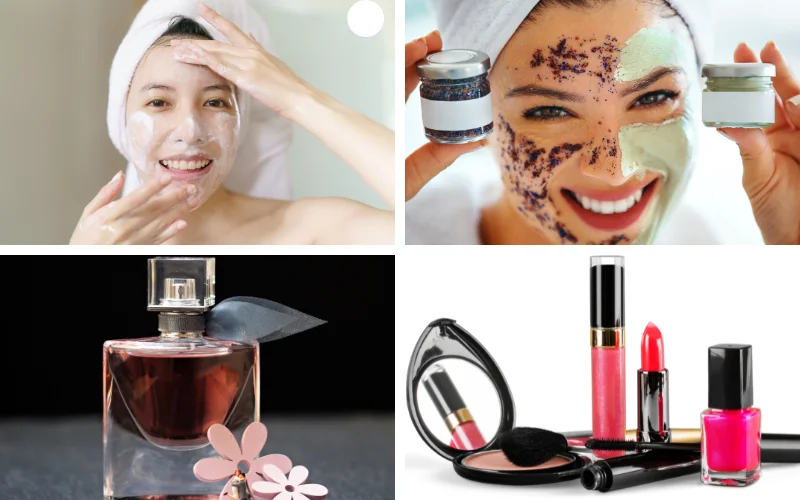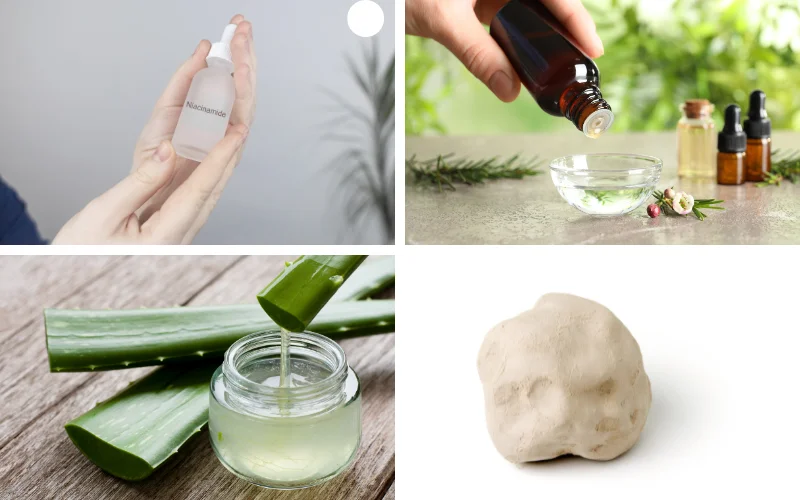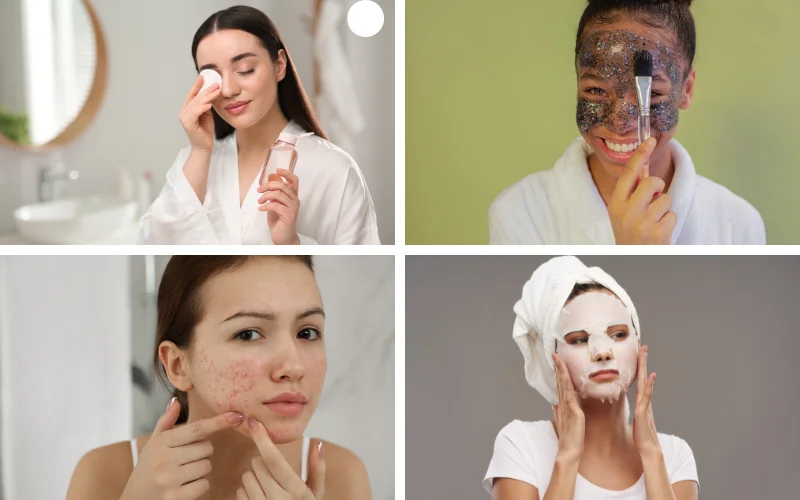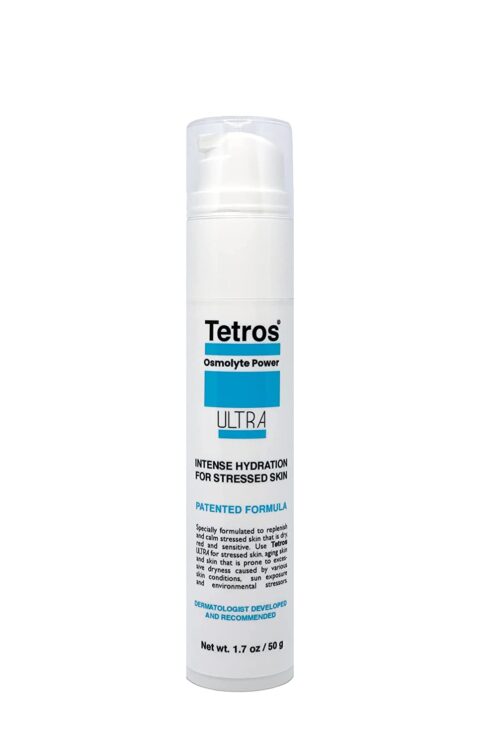Achieving youthful, glowing, and radiant skin can be challenging for people with oily skin. Our skin produces natural oils to help maintain its moisture barrier. However, excessive oil production can lead to various challenges, such as enlarged pores, acne breakouts, and a persistently shiny appearance.
The T-zone, which includes the forehead, nose, and chin, tends to produce more oil than other areas of the skin. This is because these areas have more oil-producing glands than the rest of the face. To stop your skin from becoming too oily, you need to make a special plan for taking care of it.
By following the advice in this guide, you’ll be well on your way to achieving the healthy, glowing complexion you’ve always wanted. So, let’s get started!
Causes Of Oily Skin
- Genetics: Family history can significantly determine your skin type, including the level of oil production.
- Hormonal Changes: Fluctuations in hormones, particularly during puberty, menstruation, pregnancy, or menopause, can increase oil production.
- Overactive Sebaceous Glands: Sebaceous glands produce sebum, an oily substance that lubricates the skin. Overactivity of these glands can result in excess oiliness.
- Environmental Factors: Humid climates or exposure to heat can stimulate oil production on the skin’s surface.
- Harsh Skincare Products: When we use skincare products that strip away the natural oils from our skin, our sebaceous glands respond and produce more sebum to protect the skin, making our skin more oily.
6 Don’ts in Skincare For The Oily Skin
In your skincare routine, avoiding certain practices and ingredients that can harm your skin or exacerbate existing issues is important. Here are some key things to avoid:
- Harsh Cleansers: Avoid harsh skin cleansers that strip away the skin’s natural oils. These can disrupt the skin’s barrier function and lead to irritation and increased oil production.
- Over-exfoliation: While occasional exfoliation is beneficial for removing dead skin cells and promoting cell turnover, over-exfoliating can damage the skin’s protective barrier and cause inflammation, redness, and sensitivity.
- Fragrance: Skincare products containing fragrances and perfume oils can be irritating and allergenic, especially for sensitive and oily combination skin. Look for fragrance-free or unscented products to minimize the risk of irritation.
- Alcohol-Based Products: Products containing high concentrations of alcohol can dry and irritate the skin, stripping away its natural moisture management strategy and leading to dehydration and sensitivity. Look for alcohol-free formulations of skincare products.
- Heavy Makeup: Wearing heavy or occlusive makeup products can clog pores and trap bacteria, leading to skin congestion and breakouts. Opt for lightweight, non-comedogenic makeup formulations, and remember to remove makeup thoroughly before bedtime.
- Picking or Squeezing Blemishes: Resist the urge to pick, squeeze, or pop blemishes, as this can spread bacteria, cause inflammation, and lead to scarring. Instead, treat breakouts gently with targeted spot treatments, allowing blemishes to heal naturally.
7 Do’s Tips For The Oily Skin
To improve your skin’s condition, choose products that contain ingredients known for regulating oil production and minimizing pore size. Here are some top picks:
- Salicylic Acid: A beta-hydroxy acid renowned for its ability to unclog pores, regulate oil production, and reduce inflammation. It’s particularly effective for acne-prone and oily skin types.
- Niacinamide: This vitamin B3 derivative helps to regulate oil production, supports the skin’s natural barrier function, and diminishes the appearance of enlarged pores and uneven skin tone.
- Tea Tree Oil: With its antibacterial and anti-inflammatory properties, it is a natural remedy for acne and oily skin.
- Zinc: Contributes to regulating oil production, reducing inflammation, and promoting skin healing. Zinc also possesses antimicrobial properties that can help combat bacteria.
- Aloe Vera: Known for its anti-inflammatory properties, aloe vera soothes irritated skin, reduces redness in ruddy skin, regulates oil production, and fosters a healthier, more balanced complexion.
- Clay: A potent ingredient for absorbing excess sebum and impurities, clay is commonly found in face masks and cleansers tailored for oily skin.
- Alpha-Hydroxy Acids (AHAs): These acids facilitate skin exfoliation and cell turnover, aiding in pore unclogging, oiliness reduction, and improving fine lines and wrinkles.
Morning Skin Care Routine For Oily Skin
A morning skincare routine is essential for achieving healthy, radiant skin. Here are the recommended steps for a morning skincare routine suitable for individuals with oily skin:
Cleanser
Start your day with a gentle, foaming face cleanser. Look for product ingredients such as salicylic acid or tea tree oil. These ingredients help unclog pores and control excess oil production.
Toner
Follow up with an alcohol-free toner for oily skin to remove any remaining impurities and tighten pores. Witch hazel or rose water-based toners work well for oily skin, providing a refreshing and balanced effect.
Serum
Water-based serums are helpful for all skin types, especially acne-prone ones. They contain a high concentration of active ingredients that penetrate deeply and are lightweight. Apply serum containing niacinamide or hyaluronic acid to help hydrate the skin and regulate sebum production.
Moisturizer:
Grab your non-greasy, non-comedogenic Tetros® ULTRA cream to provide intense hydration without clogging pores. This product uses a special ingredient called Taurine and other skincare ingredients to help repair and protect your skin. It’s great for keeping your skin moisturized and reducing the appearance of fine lines and wrinkles. It’s also lightweight and easily absorbed.
Sunscreen
To complete your morning routine, apply a broad-spectrum sunscreen with at least SPF 30. Choose a lightweight, non-greasy formula to protect your skin from harmful UV rays.
Night Skin Care Routine For Oily Skin
After discussing the morning routine, let’s dive into the nighttime skincare routine, which is specifically designed for oily skin and should be completed before going to bed.
Remove Makeup
Double-cleanse your face at night to remove makeup and impurities. Use an oil-based cleanser to dissolve oil-based impurities, followed by a foaming cleanser for a deep clean.
Gentle Exfoliation
To keep your skin healthy, try using a gentle exfoliating product with AHAs or BHAs. These chemicals can help unclog your pores, get rid of dead skin cells, and promote cell turnover. Be careful not to overdo it, though.
Targeted Spot Or Acne Treatment
Apply a spot treatment or targeted treatment serum with ingredients like benzoyl peroxide or salicylic acid to treat acne breakouts and control oil production. Apply these treatments only to affected areas to prevent excessive drying.
Hydrating Mask
Consider applying a hydrating mask once or twice a week to help keep your skin moisturized and calm. Look for an aloe vera or hyaluronic acid face mask for deep hydration without clogging pores.
Moisturizer
Finish your nighttime routine with a lightweight, oil-free moisturizer to promote hydration and support the skin’s natural barrier function.
Conclusion
Crafting an effective skincare routine for oily skin requires understanding its unique needs and selecting products that balance oil production while providing hydration and protection. Following a consistent morning and night routine can help you achieve a clear, radiant complexion and address concerns like acne breakouts, wrinkles, and uneven texture.
Frequently Asked Questions
Can Oily Skin Be Prone To Wrinkles?
Yes, oily skin can still be susceptible to wrinkles, especially if it is not properly hydrated. Incorporating a lightweight, non-comedogenic moisturizer with anti-aging ingredients like those found in Tetros ULTRA cream helps maintain the skin’s natural elasticity and prevent premature aging.
How Can I Address Acne While Managing Oily Skin?
Look for skincare products that contain ingredients like salicylic acid, benzoyl peroxide, and tea tree oil to target acne breakouts and regulate oil production. Consistent cleansing and exfoliation can also help prevent clogged pores and breakouts.
Can Oily Skin Become Dehydrated?
Yes, oily skin can still become dry and irritated, especially if harsh skincare products are used to control oiliness. Using a lightweight, non-comedogenic moisturizer with powerful moisturizing ingredients like those found in Tetros ULTRA will help to protect oily skin from dehydration.













Leave A Comment